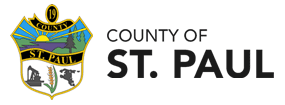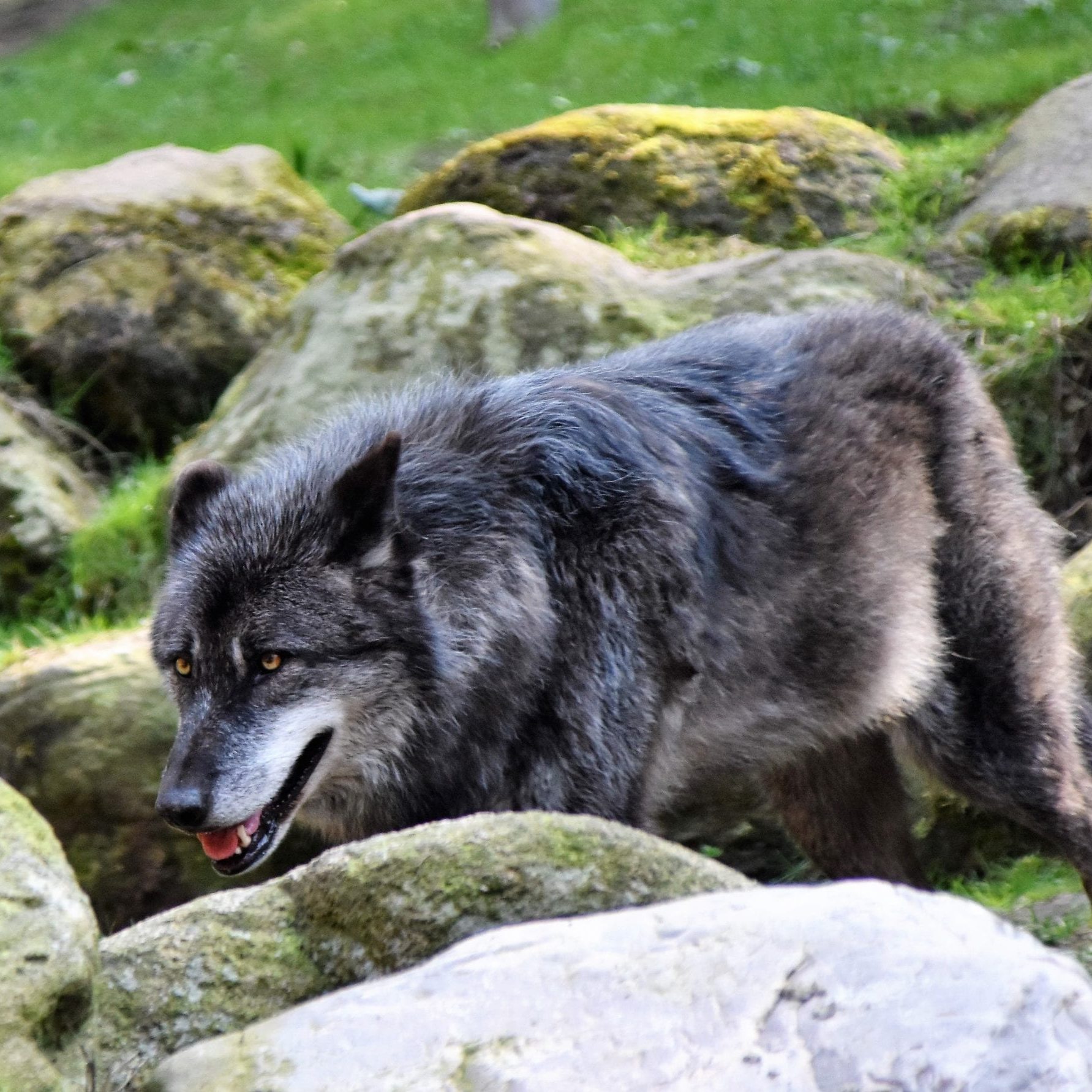Agriculture in the County
Link to Tips on how farmers, farm workers and farm families can stay safe
Drought relief support for livestock producers
Chemical Container Recycling Moving to Ag Retailers
Farmers will be able to return empty jugs up to 23L to the point of purchase. Between now and the end of 2024, empty ag jug collection sites will move from municipal depots at landfills sites and transfer stations to ag retail collection sites across Alberta.
When you purchase pesticides and fertilizers your ag retailer will giver you a free ag collection bag to store and transport your empty, rinsed container. Please use a separate bag for your seed treatment containers.
The process is being phased in and the entire process will be completed by the end of 2024. In spring 2023, before farmers return empty jugs, they are encouraged to call their local retailer to ask if they have begun accepting empty containers for recycling.
For more information click here
Energy & Environmental Response Line
To report an energy or environmental emergency or complaint call this 24-Hour Response Line
(toll-free within Alberta): 1-800-222-6514
Calling from outside of Alberta: 780 422-4505
ASB Spring 2023 Newsletter Spraying - Mowing - Pests - Recycling - And, how ASB staff can help!

LARA - Lakeland Agricultural Research Association is a non-profit agricultural research association serving Northeastern Alberta since 1991. Born from a collaboration of local producers who saw the need for regional agricultural research and extension, LARA works to support sustainable agriculture in the Lakeland.
LARA serves the Municipal District of Bonnyville, the County of St. Paul, Smoky Lake County, and Lac La Biche County.
Their mandate is to conduct innovative and unbiased research, give demonstrations, offer programs, and provide resources to local farmers.
Link to LARA Facebook and current programs
______________________________________________________________________
The Association of Agriculture Fieldmen Bursary
The bursary is intended for Alberta students continuing their education at a College or University. Students must be enrolled in an agricultural or environmental science program.
Submit applications to Keith Kornelsen, Agriculture Fieldman, County of St. Paul [email protected]
Information and the application form: https://aaaf.ab.ca/about/aaaf-bursary.html
'Do More Ag' has launched a free new peer-support mental health platform called AgTalk which is a platform designed for individuals in the Canadian agriculture industry. It provides a safe and anonymous space where individuals over the age of 16 can connect, share, and receive support from a community of peers that understand their unique experiences. This platform offers free, 24/7, clinical moderation for open discussions on mental health in both English and French. This is not meant to be a substitute for professional medical advice, diagnosis, or treatment. https://www.domore.ag/
If you are in a crisis, please visit your local emergency department or call 911 immediately.
Alberta Farm Animal Care - Printable Resources on hot stress, cold stress, and more! Link
Interested in establishing a shelterbelt? The County refers property owners who are interested in developing a shelterbelt to TreeTime. There are many trees and shrubs to choose from at varying costs.
Alberta Century Farm and Ranch Awards provides provincial recognition of farm families who have continuously owned and actively operated the same land for 100 years or more. Link to information and how to apply
Cold weather and livestock
Become familiar with the effects of cold stress on livestock.
Check out these resources https://www.afac.ab.ca/resources/printable-resources/
The Agroclimate Impact Reporter
Access hundreds of impact maps using the Agroclimate Impact Reporter Map Selector. View impact maps for Western Canada dating back to 2012 and impact maps for Eastern Canada in 2020. Map types include soil moisture and erosion, crop, hay and pasture quality and staging, feed production and availability, water supply and quality and much more.
Agriculture producers are encouraged to take five minutes to fill out a short survey provided by Agriculture and Agri-Food Canada (AAFC) that will provide AAFC with valuable information on how agroclimate impacts the affecting farm operations.
Information
Safeguards for Grain Farmers Program
What documentation and information should a producer receive from a grain company when delivering grain? Answers to this and other delivery-related questions are available on the Canadian Grain Commission
Farming in Dry Conditions
In addition to AgriRecovery funding (see below), Alberta's government has offered a number of supports to help farmers and ranchers through extreme drought conditions.
Information and tools to assist with on-farm business management and production issues during dry conditions and periods of business stress can be found below -
Alberta Environment and Parks Programs
A program to access public lands for grazing and haying with Alberta Environment and Parks. To access this program in the Lakeland contact Tanya Silzer at 780-778-7107 or email at [email protected] She is also the contact for the program to access alternative water sources.
A water pumping program to producers in securing adequate water supplies for domestic, livestock, or agricultural purposes. Click HERE for that program.
Farm Equipment on the Road
What is the most frequent type of multi-vehicle collision?
Farm machinery being hit as it is turning onto a public road
In what three-month period do almost half of all collisions occur? a. March, April and May
b. July, August and September
For more information see Safe Transportation of Farm Equipment in Alberta
Wildfire Prevention Tips
Wildfire Season is March 1 to October 31
Wildfire is probably the last thing on your mind, but with a little planning you can reduce the threat of wildfire.
Source: Farm and Acreage - A Guide to Reducing the Risk of From Wildfire
(Alberta Government, FireSmart)
Other Agriculture-related Programs
More online registry services now available. Albertans can now renew their commercial and farm vehicle registrations online.
Alberta Blue Book (Alberta's Crop Protection Guide) The Blue Book is a longstanding and trusted resource for Alberta farmers and agronomists, providing current pesticide application information. With over 600 pages of valuable crop protection information, spraying guidelines and farm safety, The Blue Book is an essential tool for your farming operation. The Blue Book publication is collaboratively produced by four of Alberta’s crop commissions – Alberta Barley, Alberta Canola, Alberta Pulse Growers and the Alberta Wheat Commission.
Alberta Wheat Commission information via webinars and field tours
Feeding Our Farmers
If you are a farmer or know of a farmer who would enjoy a visit with St. Paul Regional FCSS, nominate them today for Feeding Our Farmers!
From May 27-31, 2024, FCSS will bring a meal to a farmer and farm hands, along with supports and resources, to share some food and have a conversation about specific needs for farmers in the region.
Call 780-645-5311 to nominate a farmer and register for free! Please provide number of servings required, preferred date and date for drop off, county division and contact information.
Location can be updated morning of! As FCSS are not farmers, clean directions or a provided location pin would be greatly appreciated.

Weed & Invasive Species Control
The County aims to help our agricultural community avoid pests, weeds and invasive species. See the resources below for more information.
Alberta Insect Pest Monitoring Network - Surveillance and monitoring for insects provides a key piece to this success by gathering information about established species populations and new invasive threats to the cropping industry. This information can play an important piece in support of pest related trade discussions.
The Monitoring Network provides timely, accurate insect management resources to help monitor crop pests in Alberta ensuring crop quality and market access.
Link to website
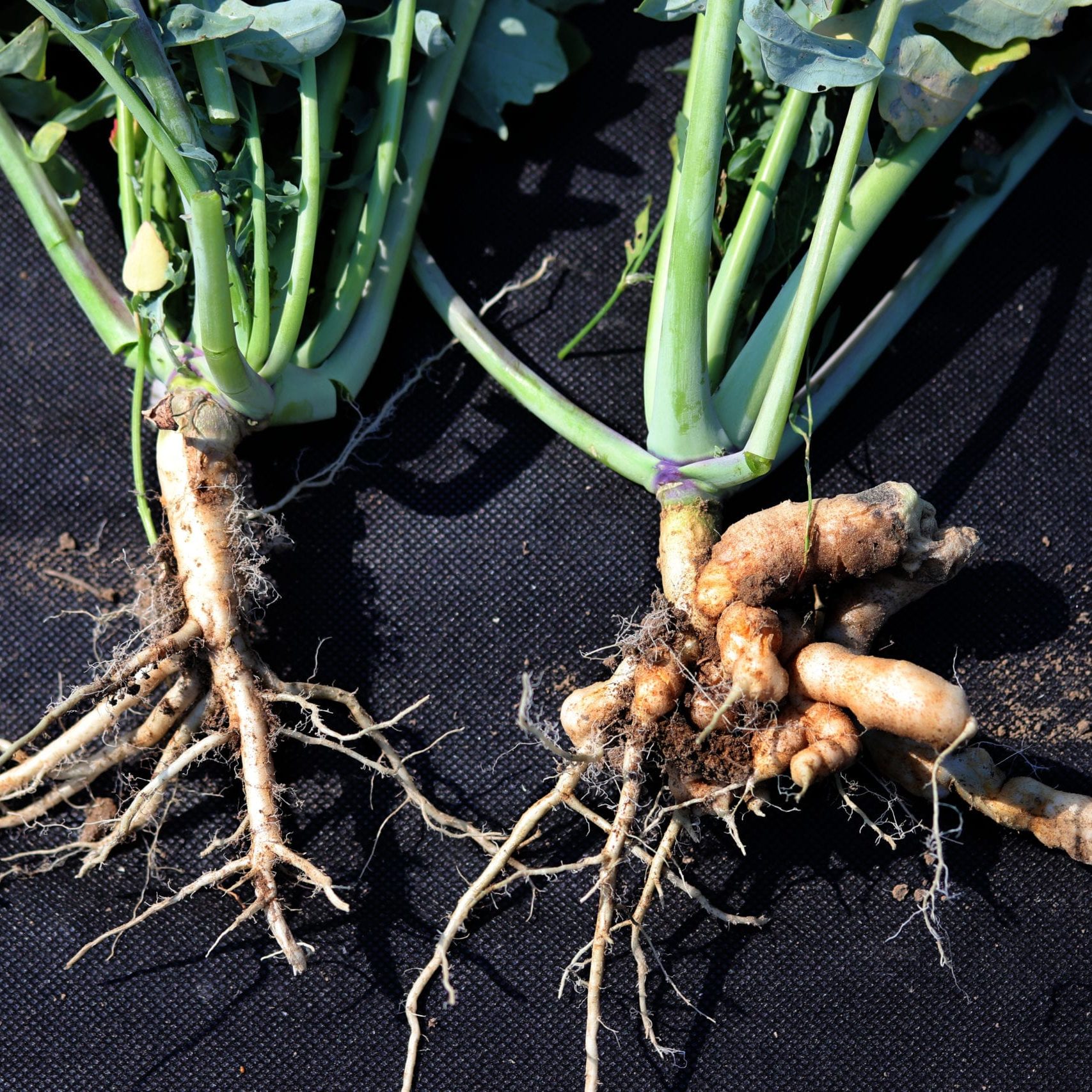
Clubroot
Clubroot is a serious soil-borne disease of canola, mustard and other crops in the cabbage family. The disease is capable of significantly reducing yields and quality, and may destroy a crop if infestations are high. Field inspections in the County are conducted each summer by inspectors appointed in the County. If a field is verified to have clubroot by a laboratory test the landowner will be notified by an Agricultural Service Board employee. A Clubroot Pest Notice will be issued to the landowner
of that field.
Clubroot Policies and Procedures (December 14, 2021)
Contact a County Agricultural Fieldman at 780-645-3006 for additional information.
Clubroot Positive Fields in the County of St. Paul 2014 to 2022

Weed Control
We work with producers to eliminate weed infestations on private land. Controlling noxious, nuisance weeds and brush are priorities along roadways and municipally controlled lands.
We also undertake many activities to control weeds in the county, including, Roadside Spraying (residents may opt out), Inspections and a Road Side Mowing Program.
[Learn More About Our Spraying Program]
[Government of Alberta Weed Selector]
Water Hemlock and Look A Likes
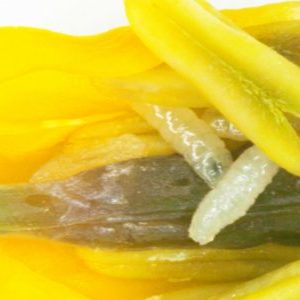
Canola Flower Midge
The canola flower midge is a pest insect recently discovered in Western Canada but there have been no outbreaks in Alberta. It looks very similar to the swede midge from the same genus (Contarinia). Only the larval stage causes damage to canola by feeding within unopened canola flowers which grow to form “bottle-shaped” galls instead of fully developing.
Contact a County Agricultural Fieldman at 780-645-3006 for additional information.
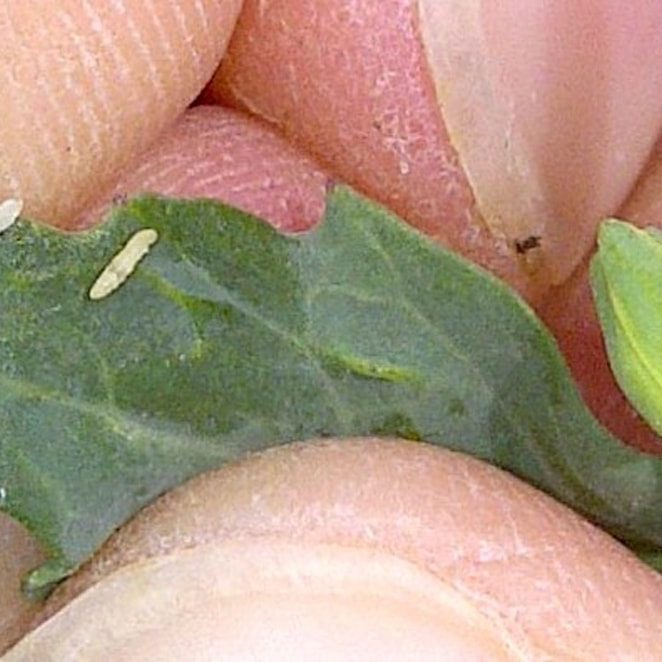
Swede Midge & damage to canola
This insect pest causes damage to canola while in its larval stage. It has been found in Ontario and other locations in Eastern Canada, and has the potential to become a significant threat to canola in the Canadian Prairies, if it were to be introduced and establish.
Contact a County Agricultural Fieldman at 780-645-3006 for additional information.
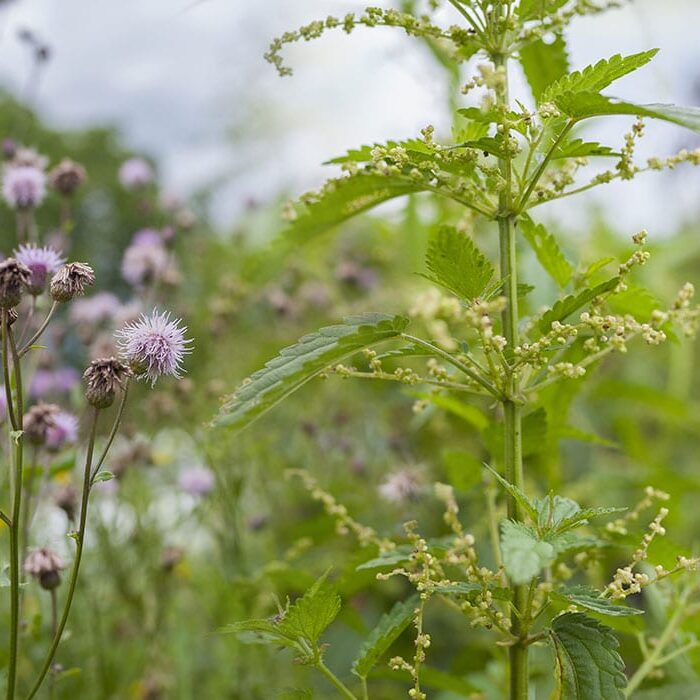
Road Side Spray Program &
Weed and Brush Control Agreements
During the summer months the ASB staff is kept busy by spraying around 500 roadside miles annually. This control method is used to stop the establishment of such weeds as Common Tansy, ox-eyed daisy, field Scabious, toad flax, Scentless chamomile and Canada or sow Thistle. Brush is also sprayed to slow down encroachment on roadsides.
Weed and Brush Control Agreements
The County does recognize that not all producers use herbicide on their farm or acreage. The County does offer a Weed and Brush Control Agreement (see below). The agreement must be signed with the County before April 30 each year to ensure no spraying is done near to private property. The agreements and signs are available from County ASB Staff at Public Works.
A Weed and Brush Control Agreement is in affect only until July 1st annually to control the weeds to the satisfaction of the ASB staff. It is up to the landowner to contact the ASB staff if they would like an extension past the 1st of July.
If your property is mowed and visibly taken care of, the County will not spray it.
The Weed and Brush Control Agreement is for developing a proactive management plan with the help of ASB Staff to reduce weeds and brush in the County's right of way (ROW). The Agreement must be filled out.
Weed and Brush Control Agreement
Pest Control
The County of St. Paul has conducted and will continue to conduct surveys of crops during the summer to keep a vigilant eye out to prevent pests from establishing and to contain when found within the municipality. We also undertake a number of other activities to control pests in the County.
Mouse Bait
The County of St Paul is once again selling mouse bait at $4.00/bag which can be sold only to bona fide farmers through ASB staff who are located at the Public Works Shop. Please make an appointment with ASB staff through the Public Works Office (780-645-3006) before coming in to ensure that an Agricultural Fieldman is available.
The mouse bait can be sold only by the Agricultural Fieldmen since they hold Pesticide Applicator Licenses.
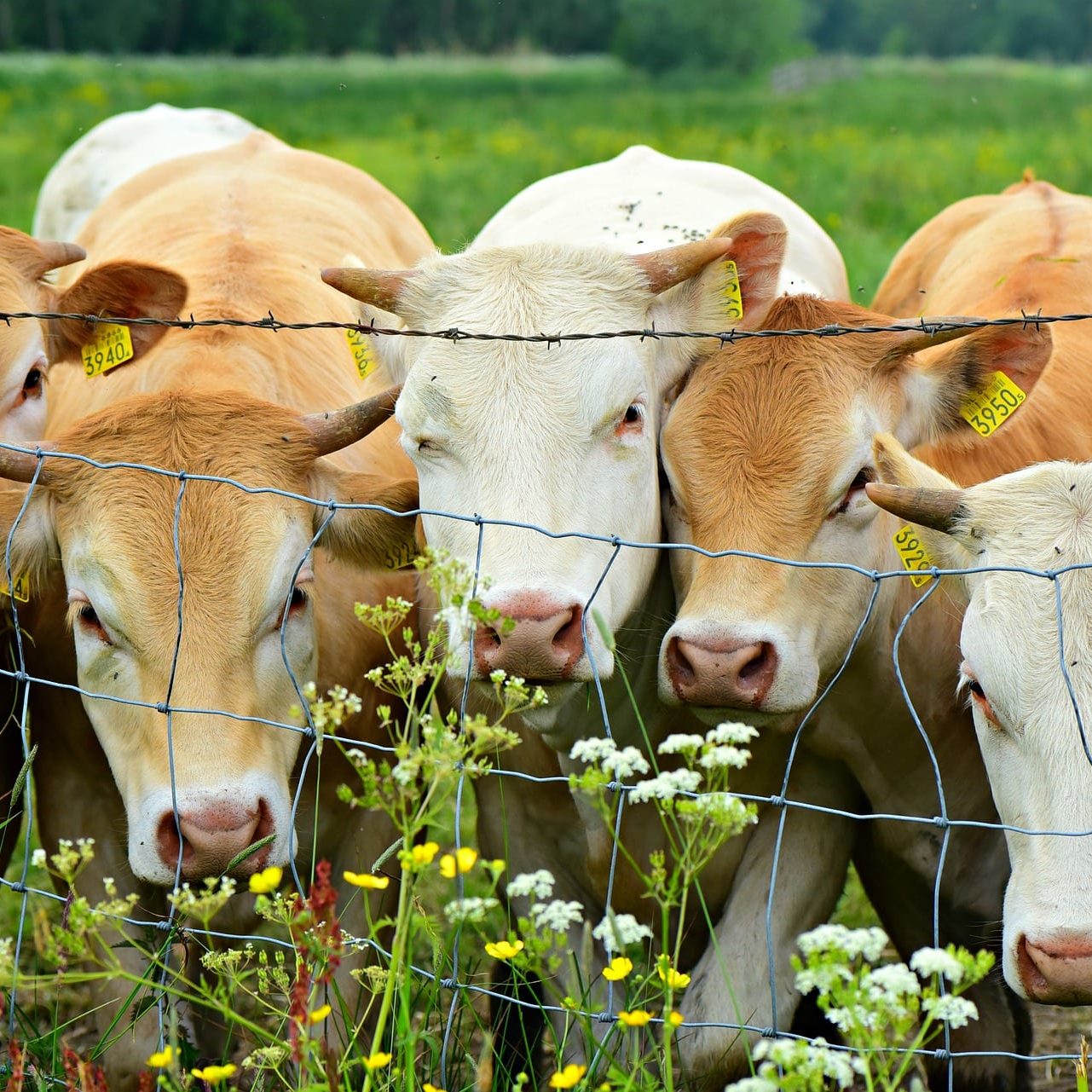
Livestock Predation
We offer domestic livestock producers assistance when livestock is being threatened and damaged. Various methods can be used to try and help producers protect their herds. Not to be used as a population control tactic.
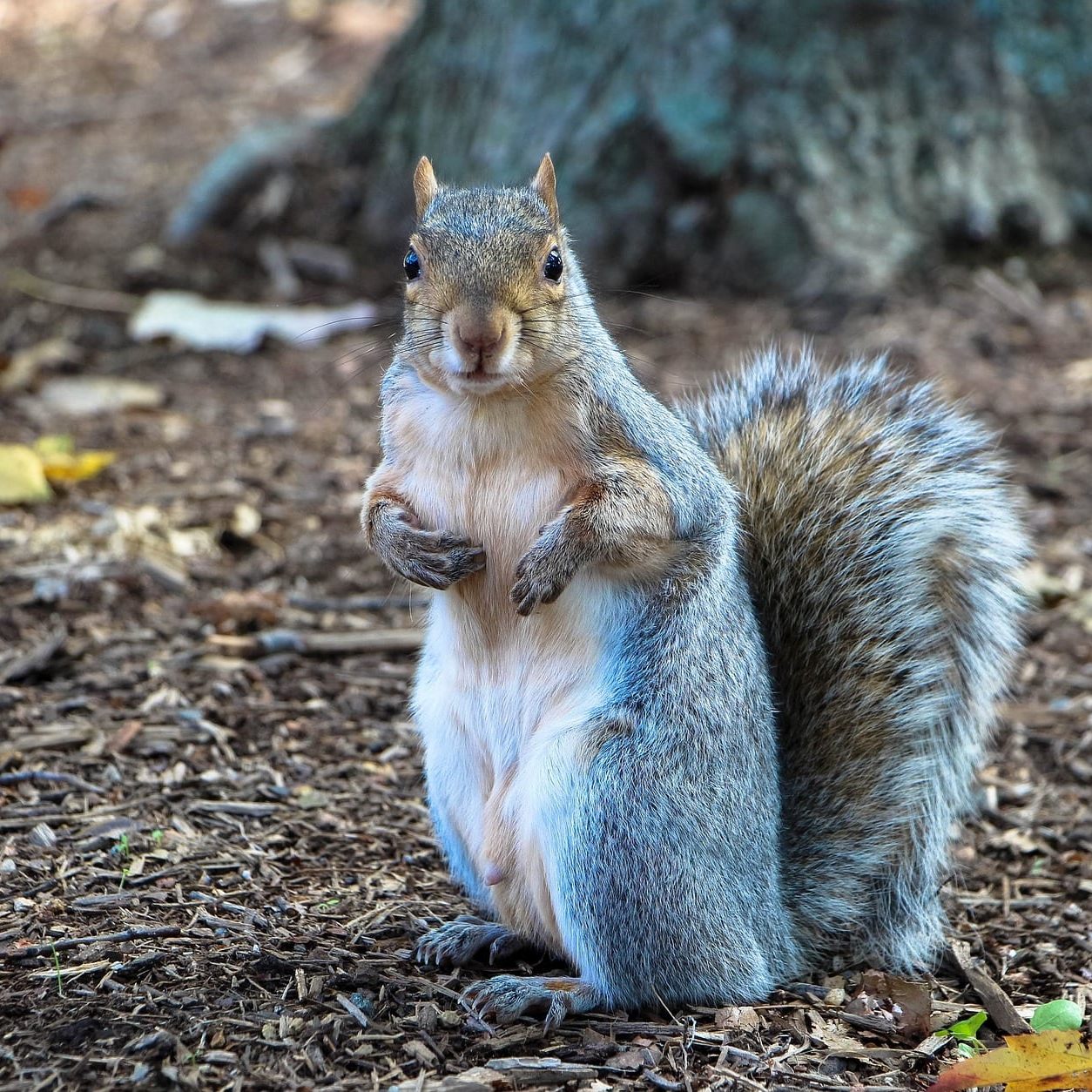
Richardson's Ground Squirrels
Richardson's Ground
Squirrel Bait
Zinc phosphide coated corn and coated oats are available at UFA and the Co-op in Bonnyville. The County is no longer selling this product.
Zinc phosphide is applied in the same manner as Strychnine, and is considered a single feed bait that is not transferred to
predators. The buyer must be able to prove they are a
producer. The County will require a mailing address, rural address, home quarter legal land location and farm size.
Health Canada
determined that
2% strychnine used to control Richardson's Ground Squirrels cannot be sold in Canada after March 4, 2022.
ASB would encourage producers to contact the PMRA and their local Member of Parliament to pressure the government to reverse its decision. Quote ‘Re-evaluation Decision RVD2020-06-Strychnine and its Associated End-use Products (Richardson’s Ground Squirrels) when asking for more information on the cancellation of Strychnine.
PMRA Contact information:
Pest Management Regulatory Agency,
Health Canada
2720 Riverside Drive
A.L. 6607 D
Ottawa, ON 1A 0K9
Phone Number: 1-800-267-6315 or 613-736-3799
Email: [email protected]
Link to the decision made by Health Canada Decision to remove
2% Strychnine
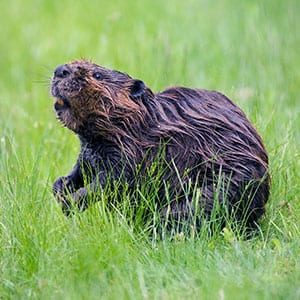
Beavers
The County manages beavers in three ways: Blasting, Cleaning, Installing a Water Leveling Device. If you want to know more about trapping, please contact Public Works.
The Beaver Reduction Program is completed for 2023
'Guidelines' Participants must first register land quarters to be involved. Beavers must be from registered quarters. The whole beaver tail must be brought in. $15/beaver tail.
Call Keith or Warren to make an appointment (see below).
The County of St. Paul has services available for private owners, to remove beavers that cause flooding to farmland and or property. The fee for Beaver Dam removal is $250/dam.
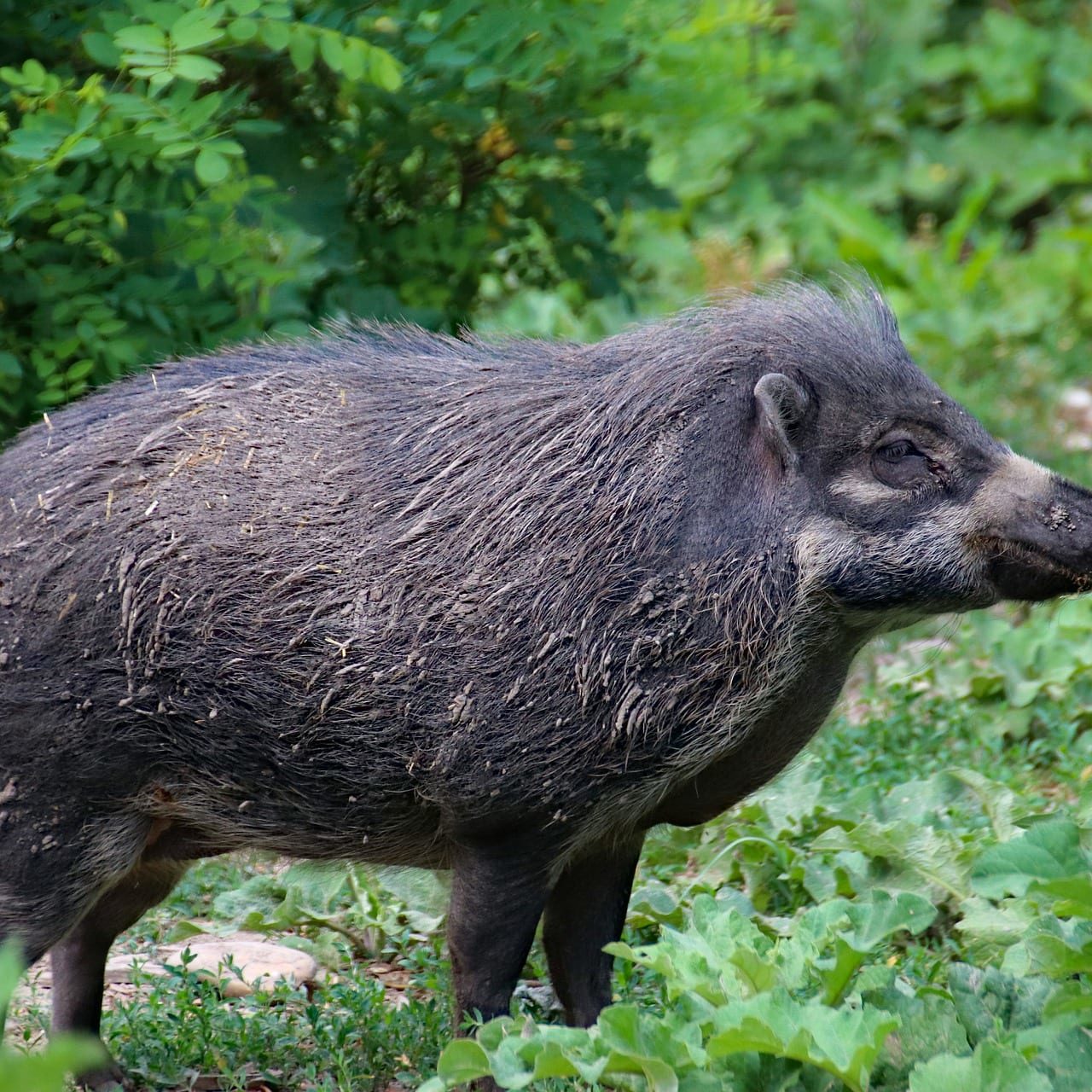
Wild Boars
Wild boar are an invasive species in Alberta and an agricultural pest when at large. Under the Agricultural Pests Act, landowners are required to control or destroy pests and prevent them from becoming established on their land.
If you see a wild boar at large,
dead or alive:
1. Safely take a picture.
2. Note the location.
3. Email [email protected] or call 310-3276 (FARM)
Is it a rat or a muskrat?
The Agricultural Service Board staff receives calls from residents about rat sightings.
In Alberta, in 2022 there were 31 rats found in the province.
Most rats make their way into the province by 'hitching' rides on vehicles coming in from Saskatchewan or B.C.
The ASB staff strongly encourages people to snap a photo and send it to [email protected] or call 310-RATS (7287).
Link to Alberta's Rat Control Program
From the photo submitted, the critter can be identified and if it is a rat the sighting can be acted on right away.
Of the 460 sightings recorded in 2022, 222 were muskrats. Overall, 429 of the sightings were classified as "non-rat" following investigation.
Rat and Mouse Comparison with photos
Rats (photo left) live primarily on land and prefer to build their nests underground, in trees, or in elevated areas within buildings.
Rats will rarely be seen moving during the day or out in the open.
Muskrats (photo right), on the other hand, are aquatic and prefer to live in the wetlands.
Muskrats will often be seen out in the open during the day as they migrate to a different habitat.
Muskrats have thicker tails than rats and can survive longer underwater.
Muskrats look more like their relatives the beaver with their thick coat of fur and stocky appearance.
Rats can reproduce quickly so if there are more than two, an infestation is declared.
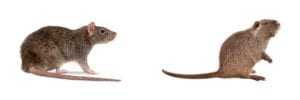
Contact
If you have an Agriculture related question we invite you to contact the County of St. Paul using the contact information found on this page.
Contact Information
JASON STORCH, Director, Community Services
Email: [email protected]
Phone: 780-646-6768
Keith Kornelsen, Agriculture Fieldman
Email: [email protected]
Cell: 780-646-6769
Warren Leister, Assistant Agriculture Fieldman
Manager of Waste and Agricultural Services
Email: [email protected]
Phone: 780-646-6784
Address:
5015 - 49 Avenue
St. Paul, AB T0A 3A4
Public Works Phone: 780-645-3006
Regular Hours:
8:30am - 4:30pm
Closed for lunch from 12:00pm - 1:00pm
Closed all Statutory Holidays

